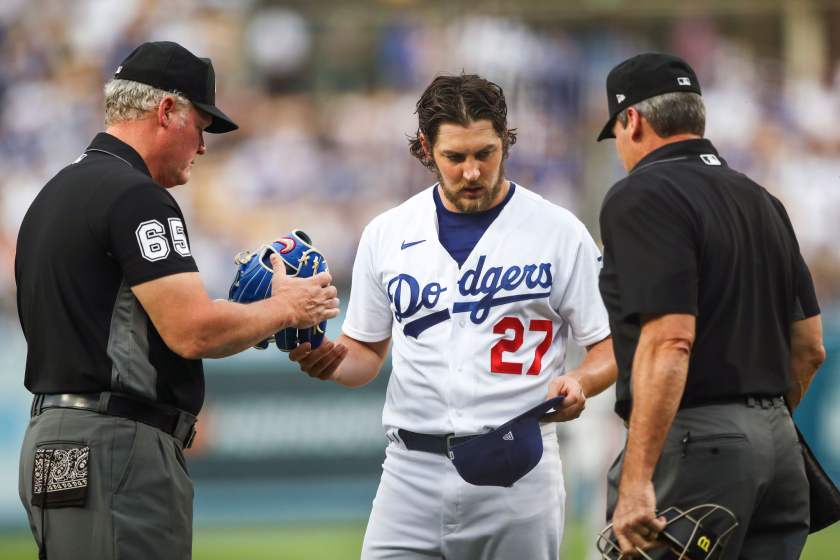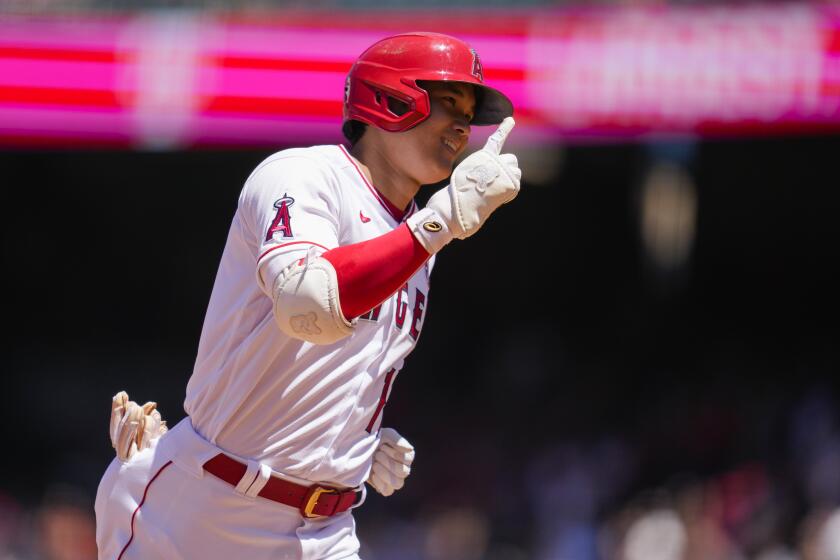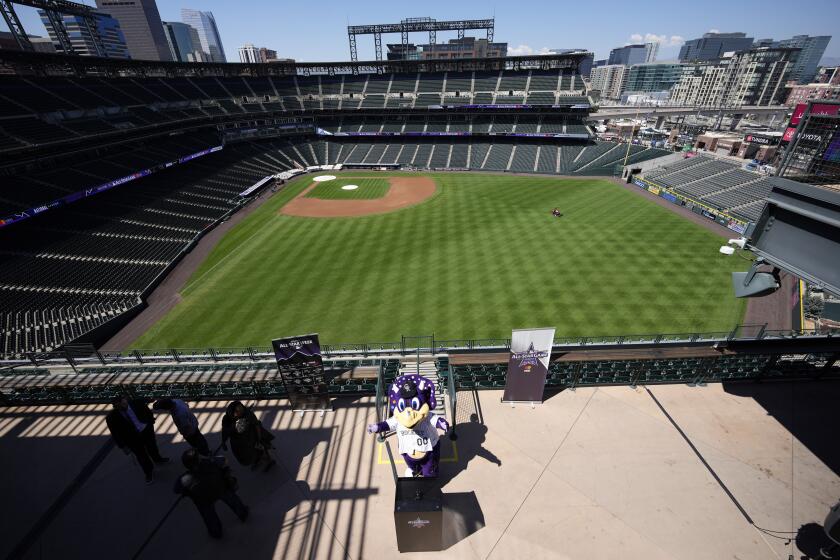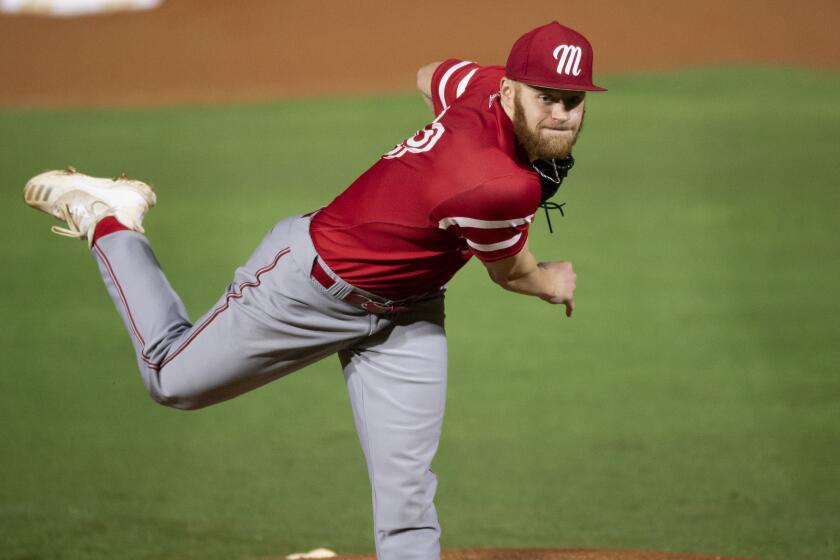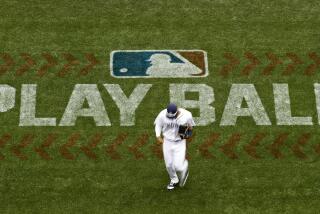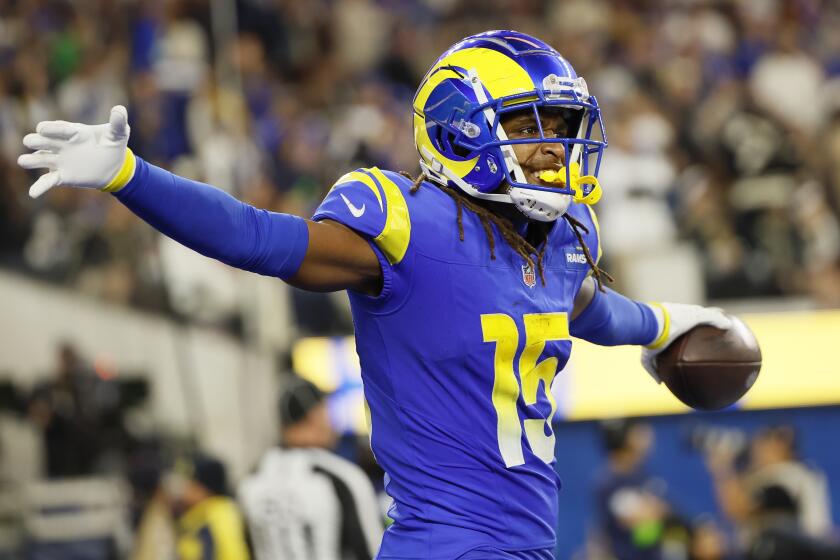Say goodbye to seven-inning doubleheaders. Will MLB say hello to limiting shifts?
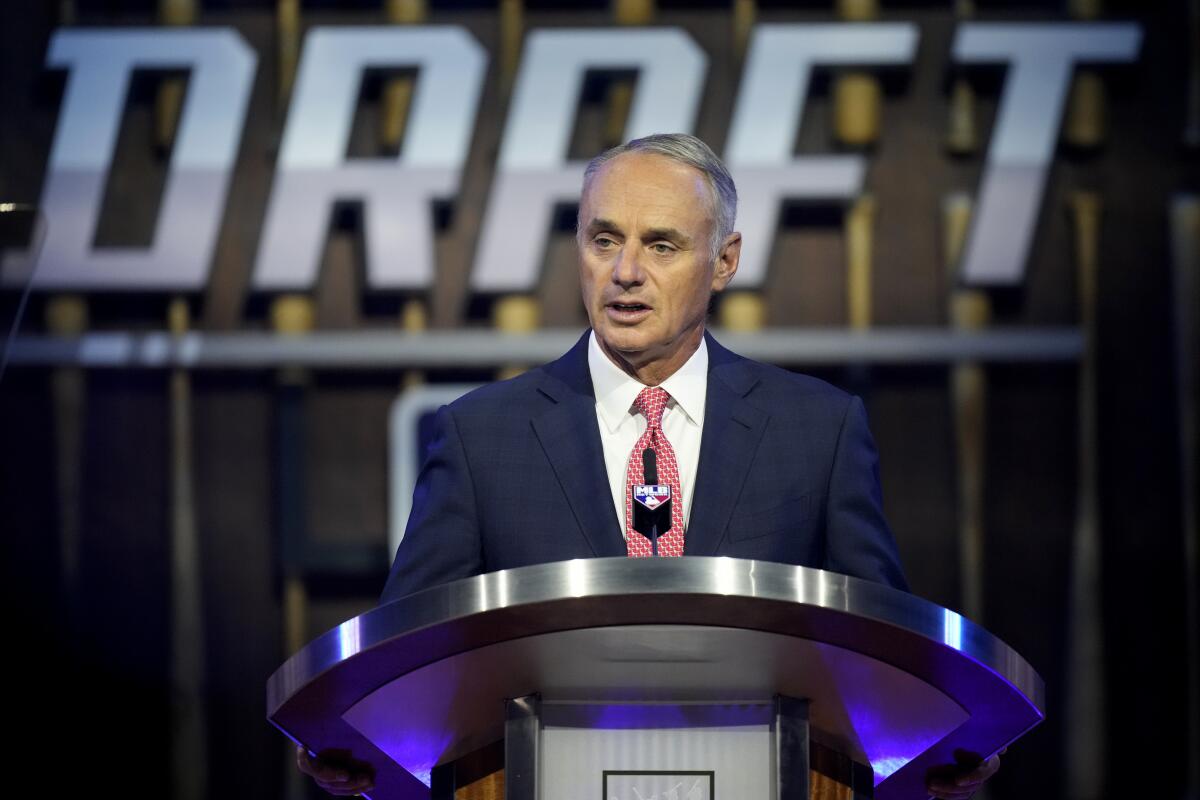
DENVER â Prior to Tuesdayâs MLB All-Star game in Denver, commissioner Rob Manfred and MLB Players Assn. executive director Tony Clark addressed a range of issues concerning the sport at a Baseball Writersâ Assn. of America meeting.
Here are five key topics they discussed.
Doubleheader and extra-inning rules
Baseball traditionalists everywhere can rejoice.
Seven-inning doubleheaders and automatic extra-inning baserunners might soon be a thing of the past.
Manfred said those rules â created as part of the leagueâs efforts to safely continue play during the pandemic â are unlikely to âbecome part of our permanent landscapeâ beyond this season.
Manfred said the league might discuss other ânon-radicalâ rules changes with the Players Assn., such as adding the designated hitter to the National League or implementing regulations against infield shifts.
Commissioner says joking comments by Dodgers president didnât help MLBâs efforts to create a comfortable work environment for women.
But the doubleheader and extra-inning changes that were made prior to last season might be in their final days.
Vaccination effort
Clark said the union wasnât making an outright âpushâ for its remaining unvaccinated players to get the COVID-19 vaccination but insisted they had âencouraged from the beginningâ for players to do so.
Even as stadiums return to full capacity and masks become scarcer around ballparks, the pandemic has continued to have an effect on the season, most recently when the Philadelphia Phillies had to place four players on the COVID injured list last week.
According to Manfred, 85% of the leagueâs Tier 1 personnel (a group that includes players, coaches and those who most closely interact with them) have been vaccinated. Seven teams, however, still remain below the 85% threshold, the point at which social distancing restrictions are relaxed for clubs.
Shohei Ohtaniâs two-way exploits will be among the highlights during the All-Star game and home run derby. Check out The Timesâ complete coverage.
Manfred didnât rule out the possibility of the league potentially requiring players to be vaccinated â he noted that the commissionerâs office had a mandatory vaccination policy â but said conversations with the MLBPA hadnât reached that point yet.
âI understand people have different views,â Manfred said. âI wish everybodyâd get vaccinated. I think it would be a good thing for us generally. But youâve got to work it through with the people that represent the players.â
The fate of the Aâs in Oakland
Manfred said the process for trying to get the Oakland Athletics a new ballpark in Oakland was heading toward an ultimatum, with upcoming votes by local governmental authorities on a proposed stadium project likely to âdetermine the fate of baseball in Oakland.â
The Oakland City Council is set to vote next week on a stadium proposal at Howard Terminal in Oakland, the latest of several efforts to build the Aâs a new ballpark in the Bay Area. If that project is not approved, Manfred said the Aâs potential relocation to Las Vegas or another city would âtake on more pace.â
âLas Vegas is a viable alternative for a Major League club, and there are other viable alternatives that I havenât even turned the Aâs loose to even exploring at this point,â Manfred added. âThinking about this as a bluff is a mistake. This is the decision point for Oakland.â
Other rules changes
Although the seven-inning doubleheaders and extra-inning modifications likely are going away, other potential changes to the game remain possible as the league and playersâ union embark on negotiating a new collective bargaining agreement.
Manfred said rules changes the league might pursue would have a common goal of making the game more enjoyable for players, teams and fans.
What that means to each group, however, will undoubtedly differ.
Some officials said the economic impact on Atlanta losing the All-Star game would be $100 million. Thereâs no evidence the figure is anywhere near that.
Citing regulation of infield shifts as one example, Manfred characterized potential proposals as a ârestorationâ of the gameâs historical style rather than a fundamental change.
âWhat we play today doesnât look all that much like 1971,â Manfred said. âThe question is, which version would you like to get to? Thatâs the way I think about the differences.â
Clark also weighed in on how players might view such rules changes, though he didnât reveal how the union might respond to specific ideas.
âPlayers are willing to talk about adjustments; players are willing to talk about the best ways to move the game forward,â Clark said. âPlayers are also interested in protecting the integrity of what the game has always been. Thatâs what they fell in love with and many folks have fallen in love with.â
CBA negotiations
Speaking of the CBA negotiations, neither Manfred nor Clark revealed details about how the process was going less than five months before the current agreement was set to expire.
The Angels could have made highly touted Vanderbilt pitcher Kumar Rocker their first pick. Instead they drafted a pitcher theyâve coveted for a long time.
Manfred did downplay the notion that last yearâs contentious negotiations on how to stage the pandemic-shortened 2020 season would have some effect on the latest discussion between the sides.
âI think we have a very professional working relationship with the MLBPA,â Manfred said, adding: âAgreements get made or not made based on the substance of whatâs out there. The fact we had a period of time, which we admittedly had last spring, where we had serious disagreements that became public I donât think is really an indicator of whether youâre going to get a new agreement.â
More to Read
Go beyond the scoreboard
Get the latest on L.A.'s teams in the daily Sports Report newsletter.
You may occasionally receive promotional content from the Los Angeles Times.


